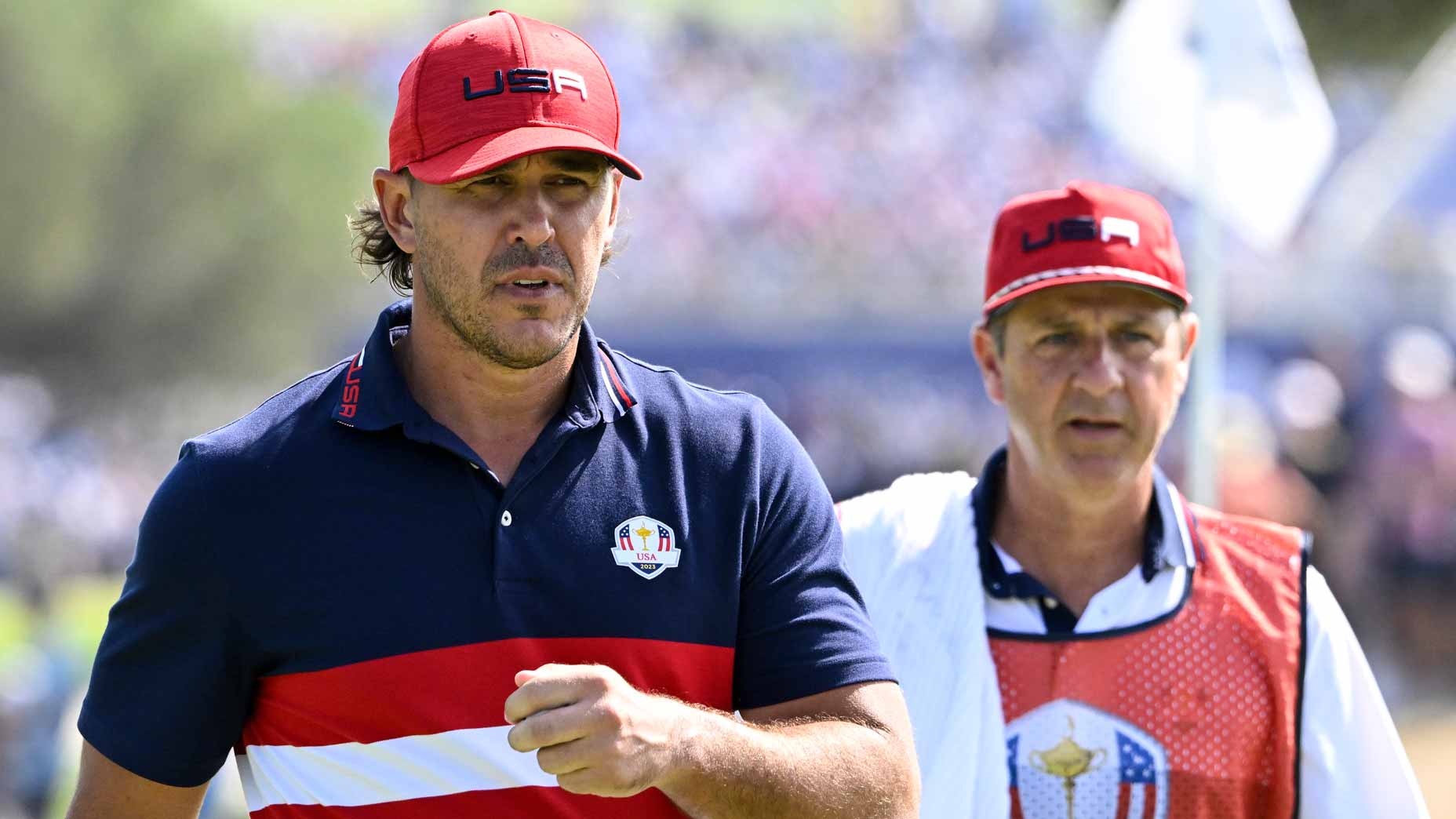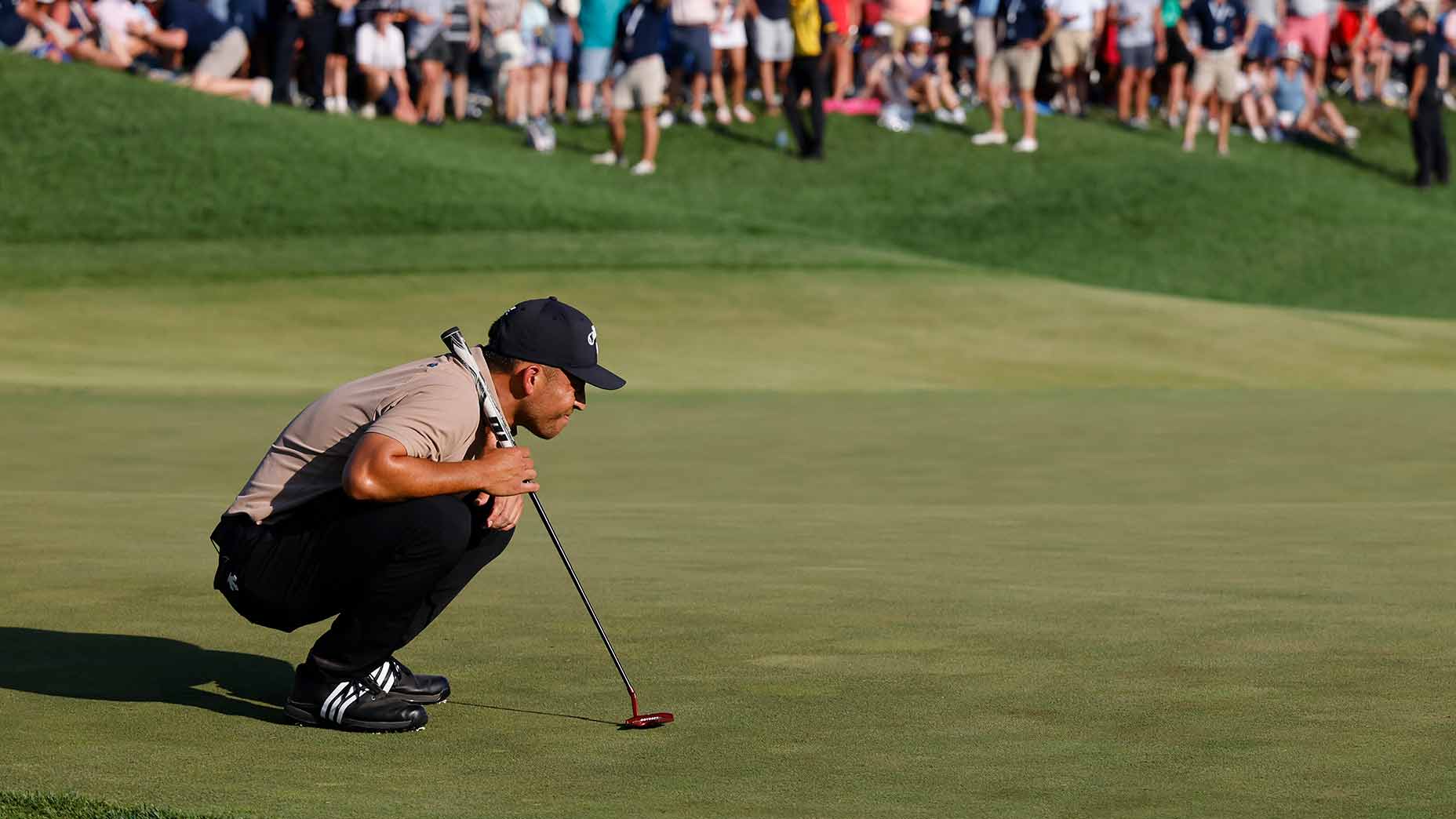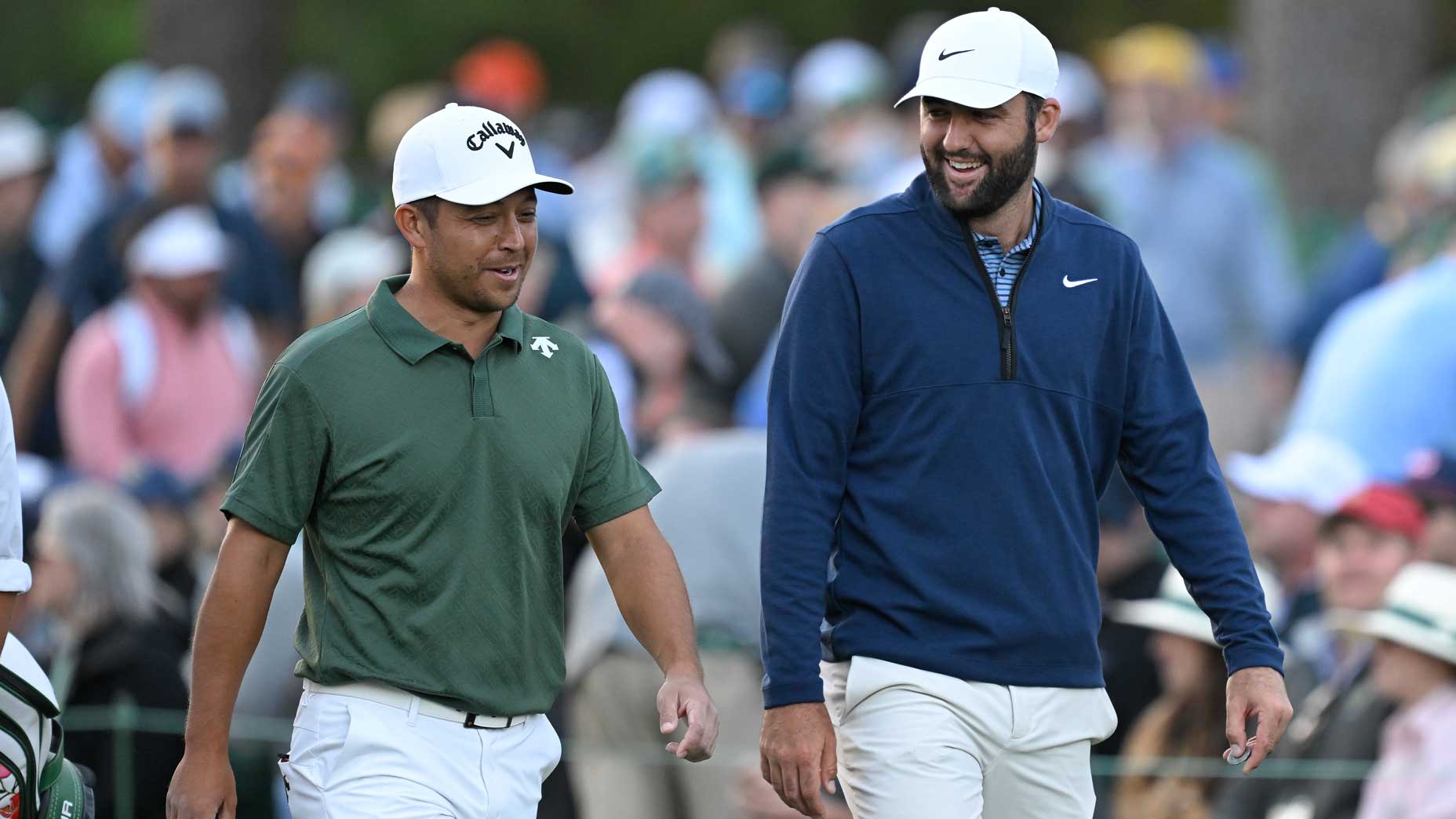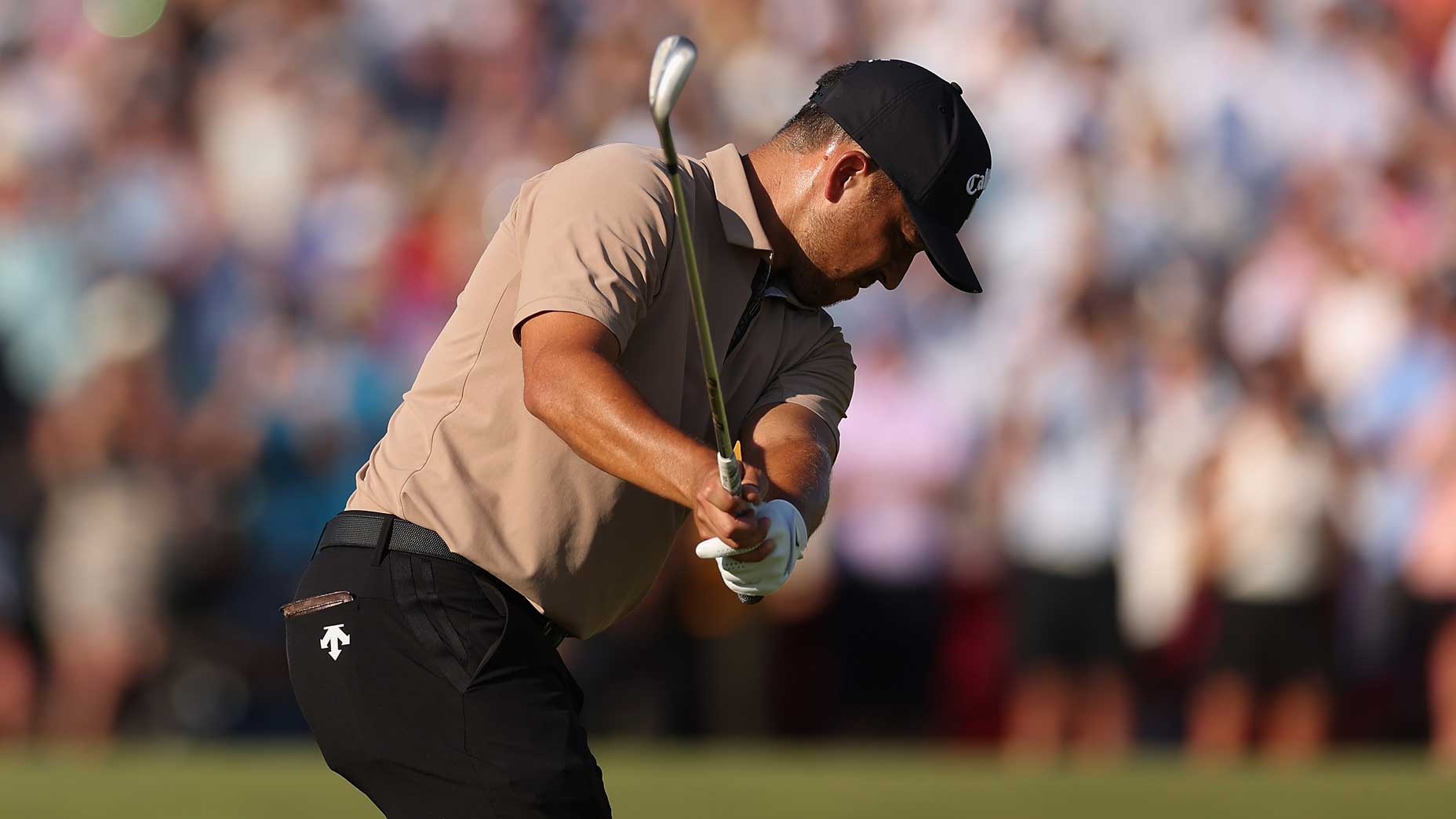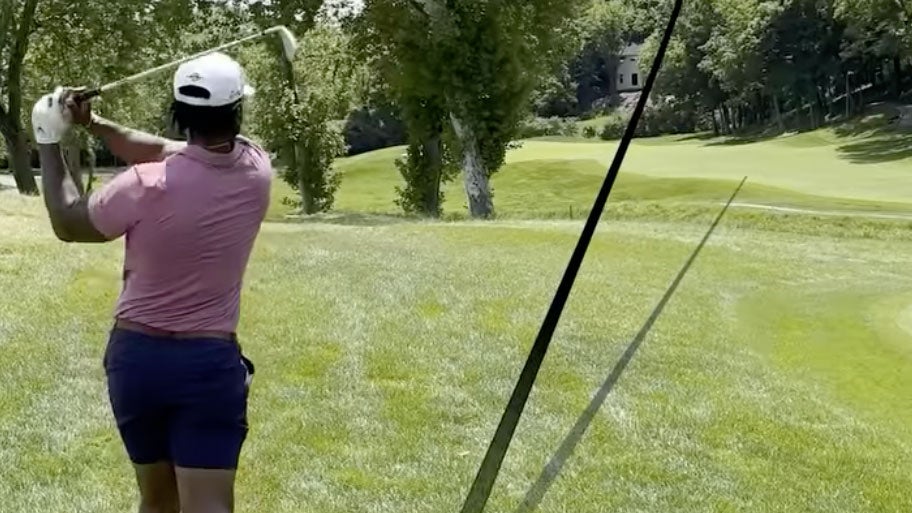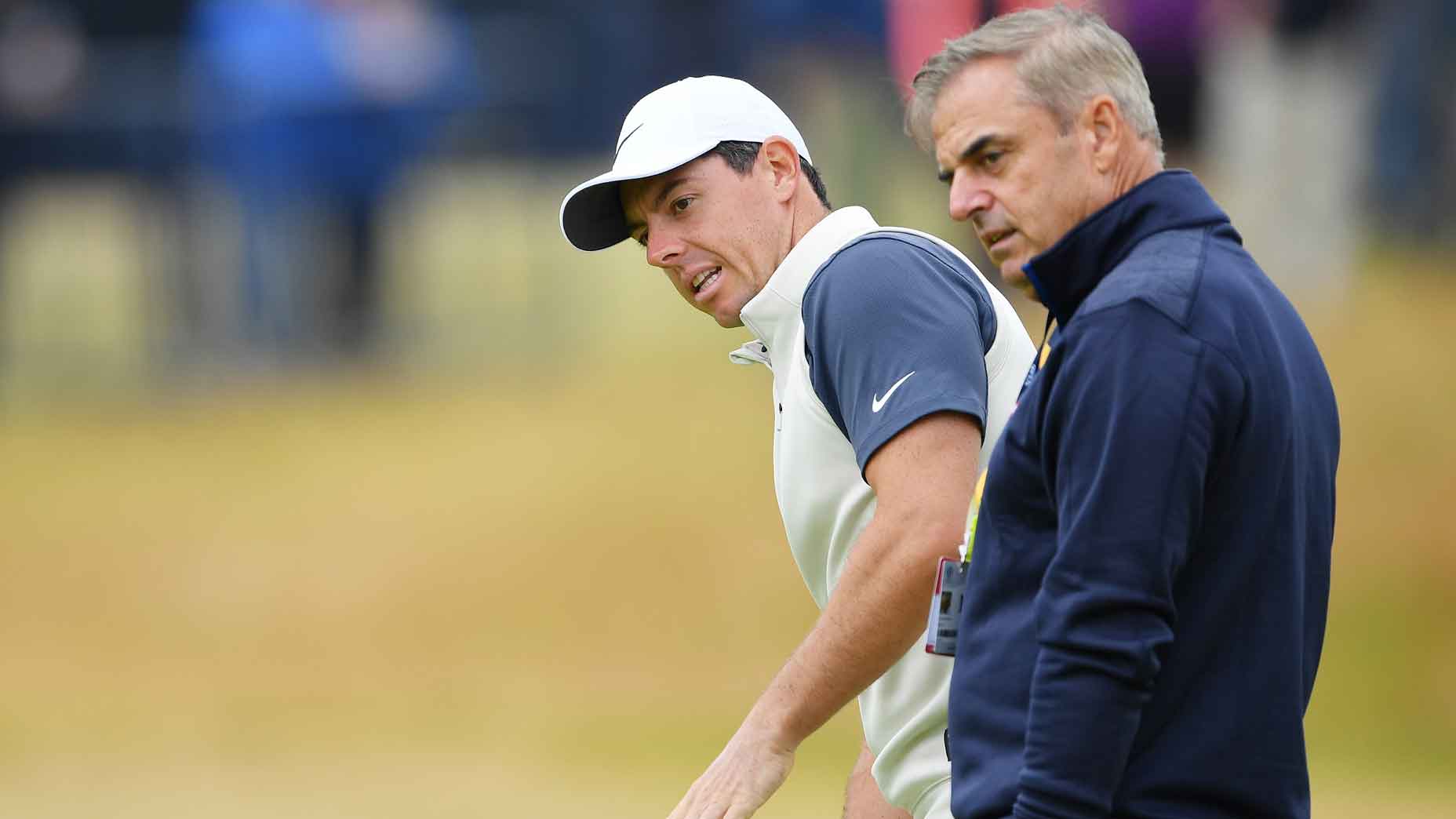Pro hit with painful rules violation after he thought he made par
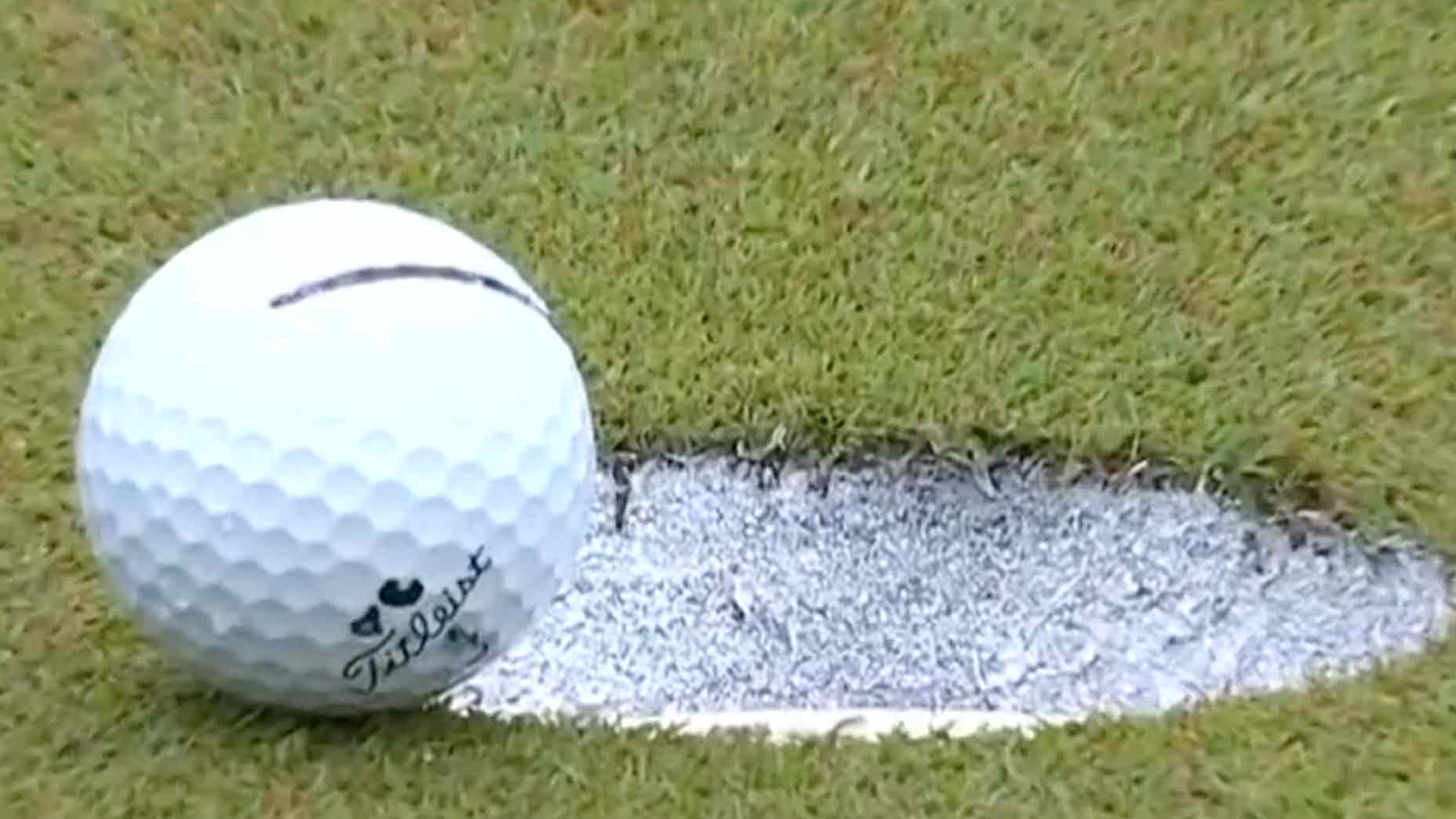
Lee Hodges thought he made a nifty par on the par-4 17th hole during the third round of the PGA Championship, but he was later penalized.
@ForePlayPod
Lee Hodges waited, and waited, and then waited some more. His 16-foot par try on the 17th hole at Oak Hill Country Club during the third round of the PGA Championship on Saturday inexplicably sat on the edge, refusing to drop into the bottom of the cup.
It slid past the right edge of the hole, caught a piece of it and sat on the back lip. He hoped it would drop in through the backdoor. So did the crowd and broadcast team. You can hear his playing partner, Jordan Spieth, say, “I think it’s gonna go.” Finally, it did.
About 34 seconds after the ball came to a stop, it gained enough momentum and plopped in for an entertaining par. The crowed cheered and Hodges, relieved, flashed a smile.
The bad news? Turns out Hodges waited too long. The PGA of America Rules Committee later slapped the 27-year-old pro with a one-stroke penalty via a breach of Rule 13.3a — ball overhanging hole.
According to the Rules of Golf, if a ball comes to rest on a lip like Hodges’ did, players are allowed a “reasonable time to reach the hole” and, once there, the 10-second clock starts. If the ball drops in during those 10 seconds, all good. If they wait longer than that, as they say Hodges did, then it’s a one-stroke penalty.
“During play of the 17th hole, Hodges played his first putt to the edge of the hole and after having walked up to the hole, behind his ball, he then waited more than 10 seconds,” the PGA’s statement read. “The ball then fell into the hole, after the 10-second limit provided for in the Rule. As a result, Hodges received a one-stroke penalty.”
This dilemma happens often in golf, and players sometimes take advantage of the “reasonable time to reach the hole” part of the rule. Sometimes they might milk it ever so slightly — taking longer to arrive at the hole without making it seem obvious — to give themselves a few extra precious seconds before the 10-second clock starts. But it still might not have been enough time to help Hodges.
With Hodges’ score changed from a par to a bogey, he signed for a five-over 75 and is 10 over for the tournament.


